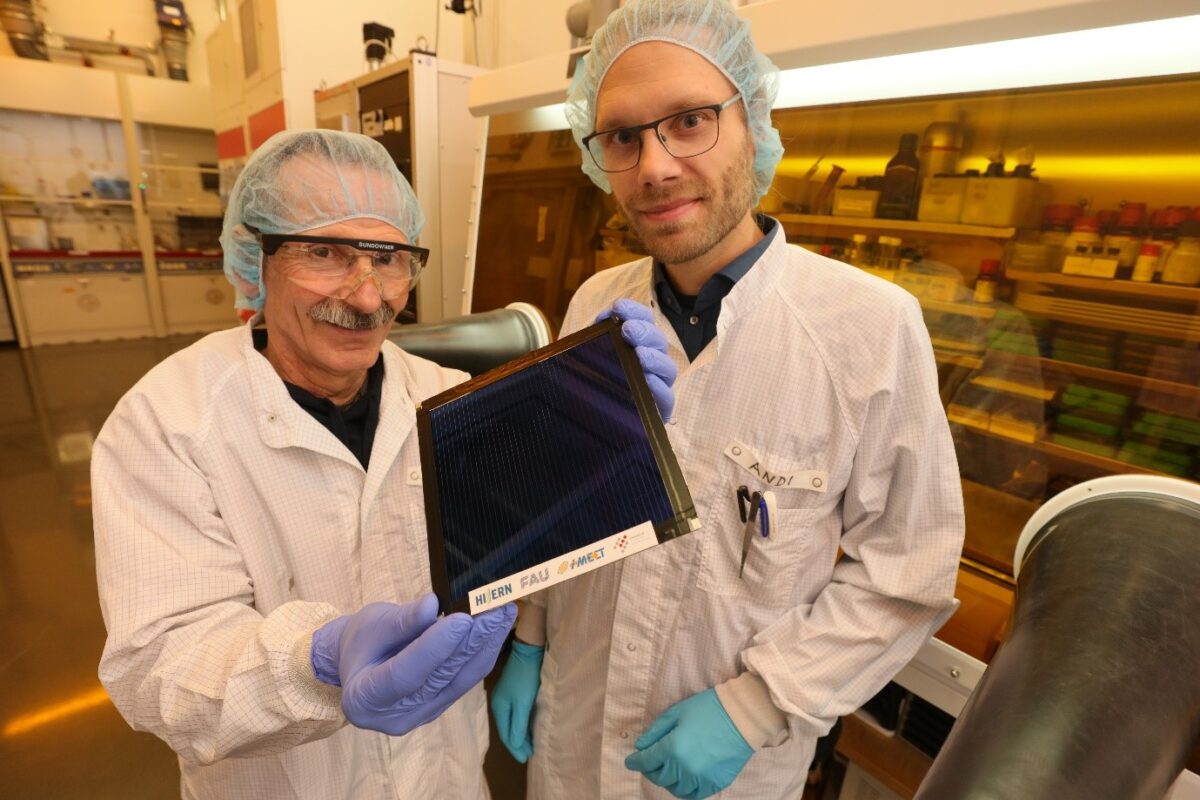Researchers at the Friedrich-Alexander-Universität Erlangen-Nürnberg (FAU) in Germany claim to have achieved a power conversion efficiency of 14.46% for an organic PV module.
“The size of the new record OPV module is 204 cm². The number of cells connected in series is 38,” Andreas Distler, Group Leader OPV Modules at FAU, told pv magazine, adding that he expects the results to appear soon in the US Department of Energy’s National Renewable Energy Laboratory (NREL) champion PV module efficiency chart.
The new result is a jump up from the current record of 13.1 % recorded for a 57-cell encapsulated module by Taiwan-based OPV specialist, Ways Technical Corporation (Waystech) and Nanobit.
In a press release, the team noted that the module is a solution-processed OPV, attributing the efficiency improvement to three aspects of the research project: the active materials used; the laser processing, which reduced inactive areas on the surface, and improved interconnects; and third, the use of simulations to establish a more homogeneous coating, which was done in partnership with a team from Georg Simon Ohm University of Applied Sciences in Nuremberg.
Popular content
The research team included researchers from Helmholtz Institute Erlangen-Nürnberg for Renewable Energy (HI ERN), which is part of Forschungszentrum Jülich. “We are currently preparing a paper on the development of this new record module, which will disclose all the technical details,” said Distler.
In 2020, the same FAU team achieved 12.6% efficiency record on a module area of 26 cm2 and 11.7% on a module area of 204 cm2.
This content is protected by copyright and may not be reused. If you want to cooperate with us and would like to reuse some of our content, please contact: editors@pv-magazine.com.


1 comment
By submitting this form you agree to pv magazine using your data for the purposes of publishing your comment.
Your personal data will only be disclosed or otherwise transmitted to third parties for the purposes of spam filtering or if this is necessary for technical maintenance of the website. Any other transfer to third parties will not take place unless this is justified on the basis of applicable data protection regulations or if pv magazine is legally obliged to do so.
You may revoke this consent at any time with effect for the future, in which case your personal data will be deleted immediately. Otherwise, your data will be deleted if pv magazine has processed your request or the purpose of data storage is fulfilled.
Further information on data privacy can be found in our Data Protection Policy.